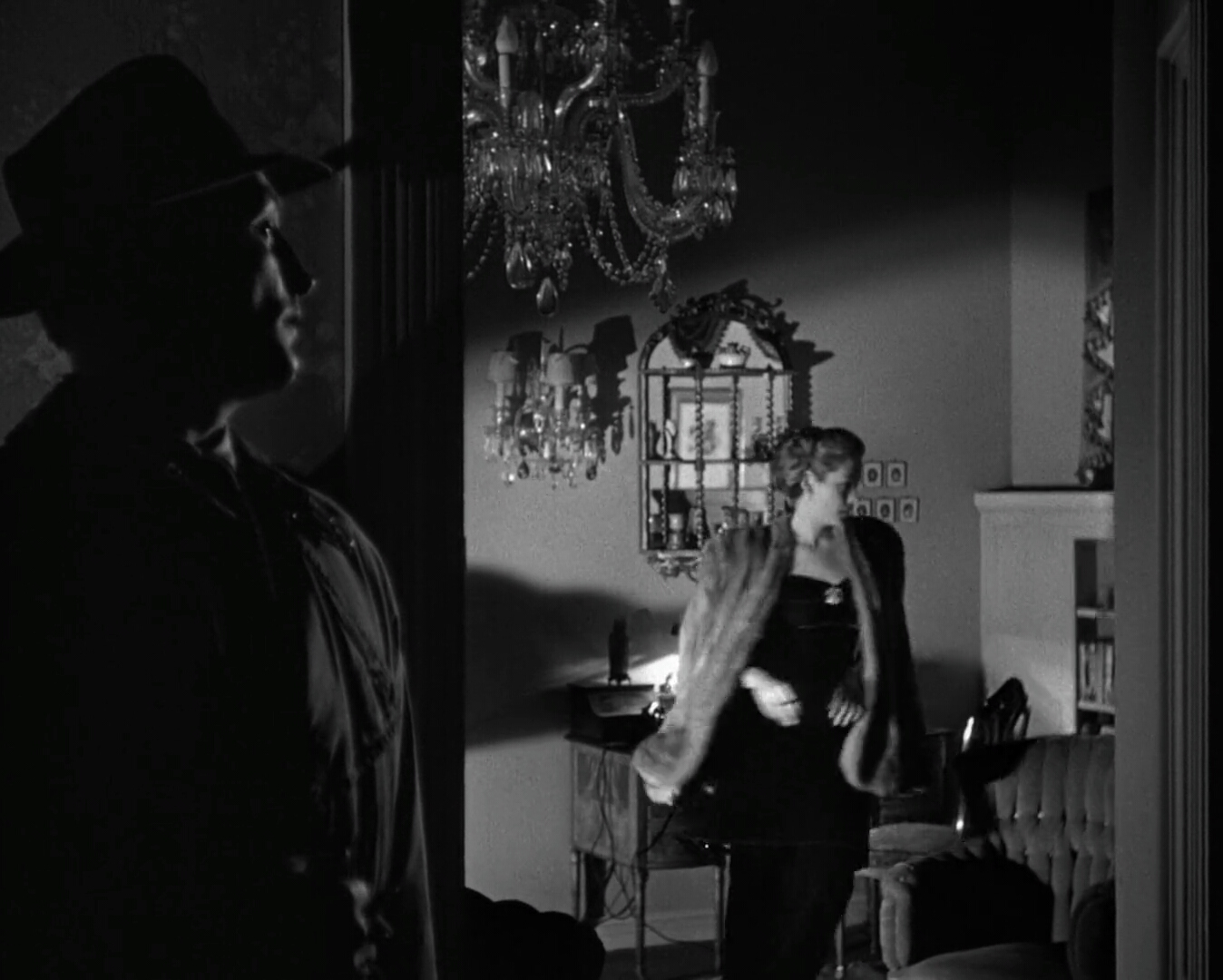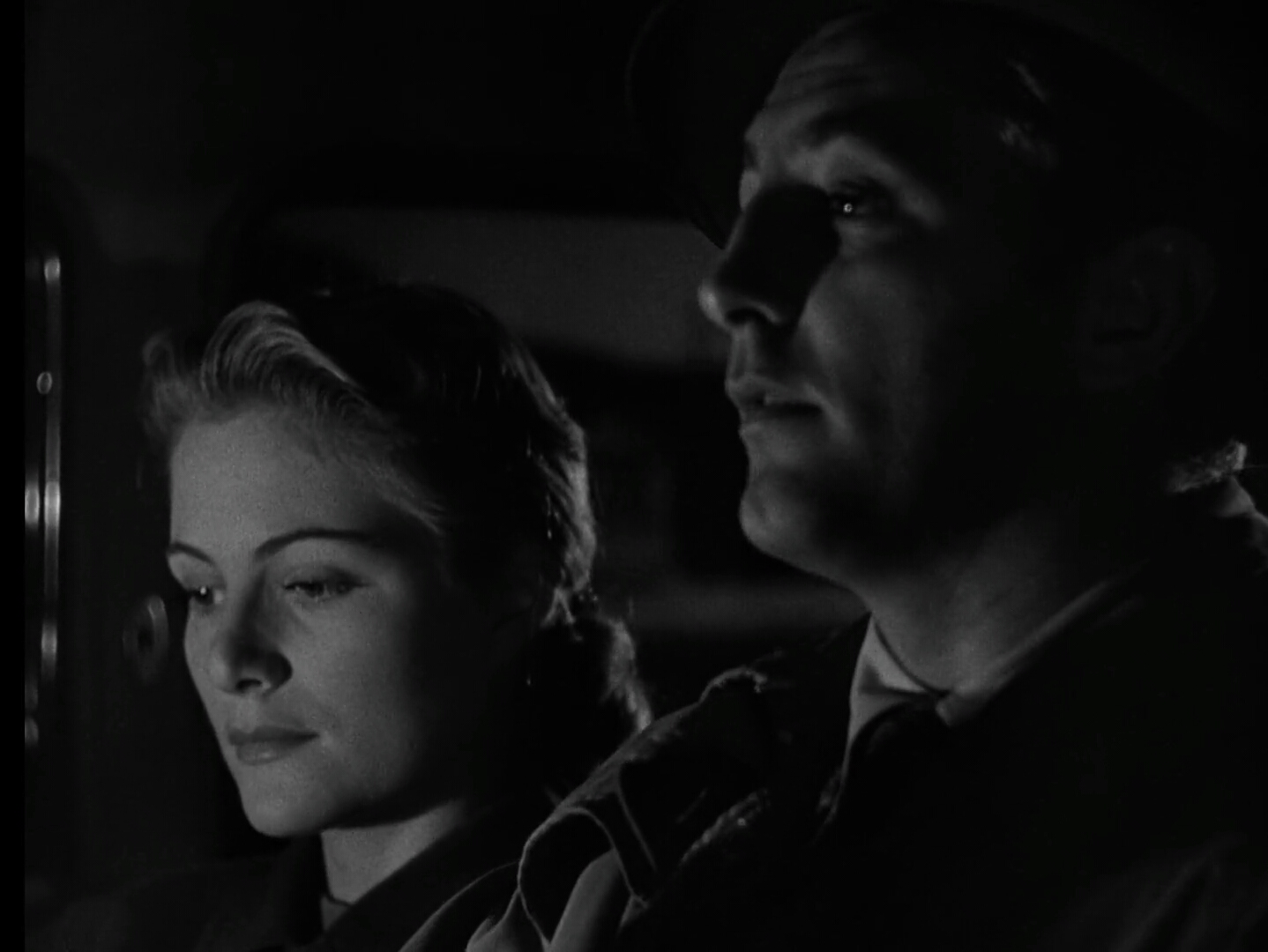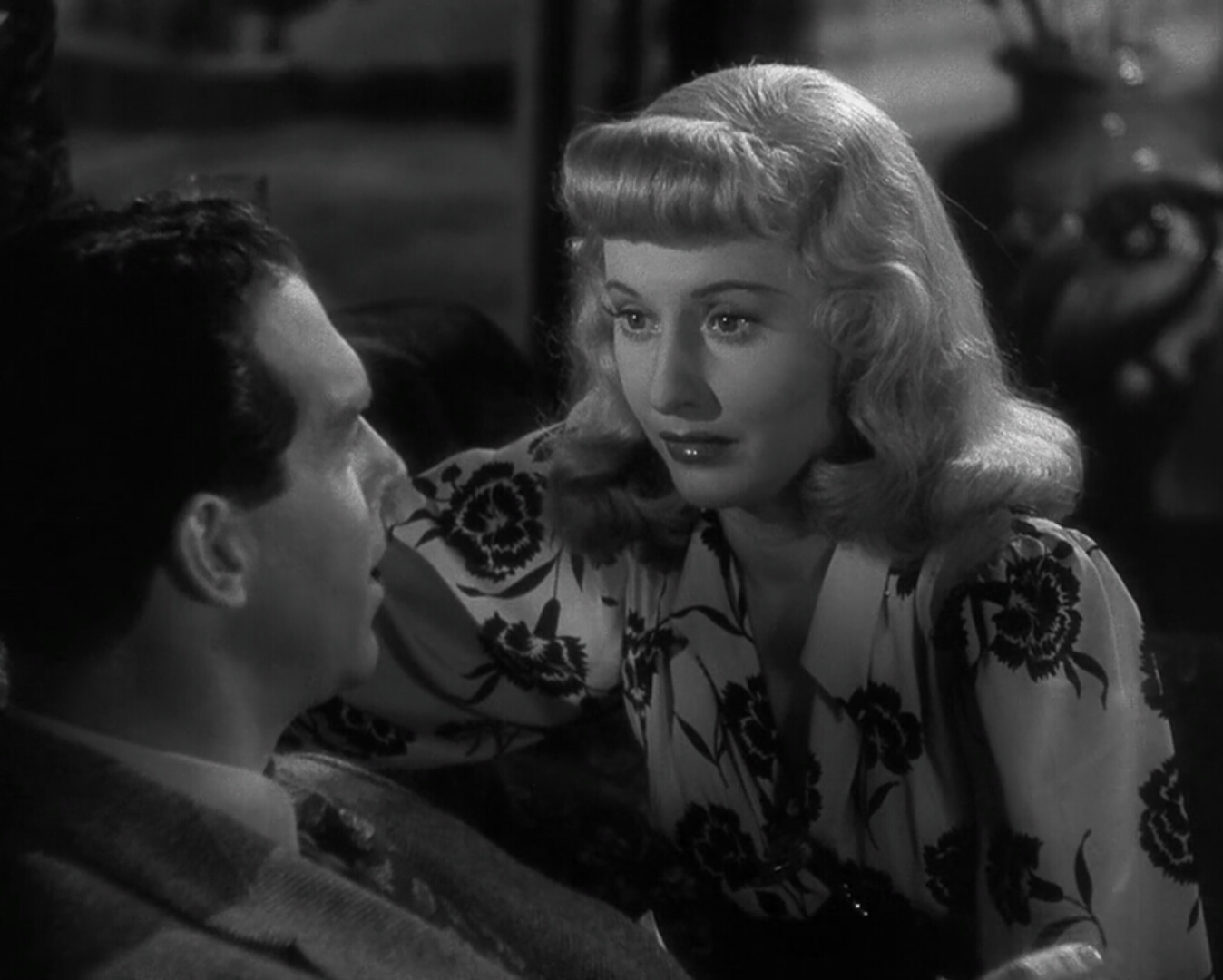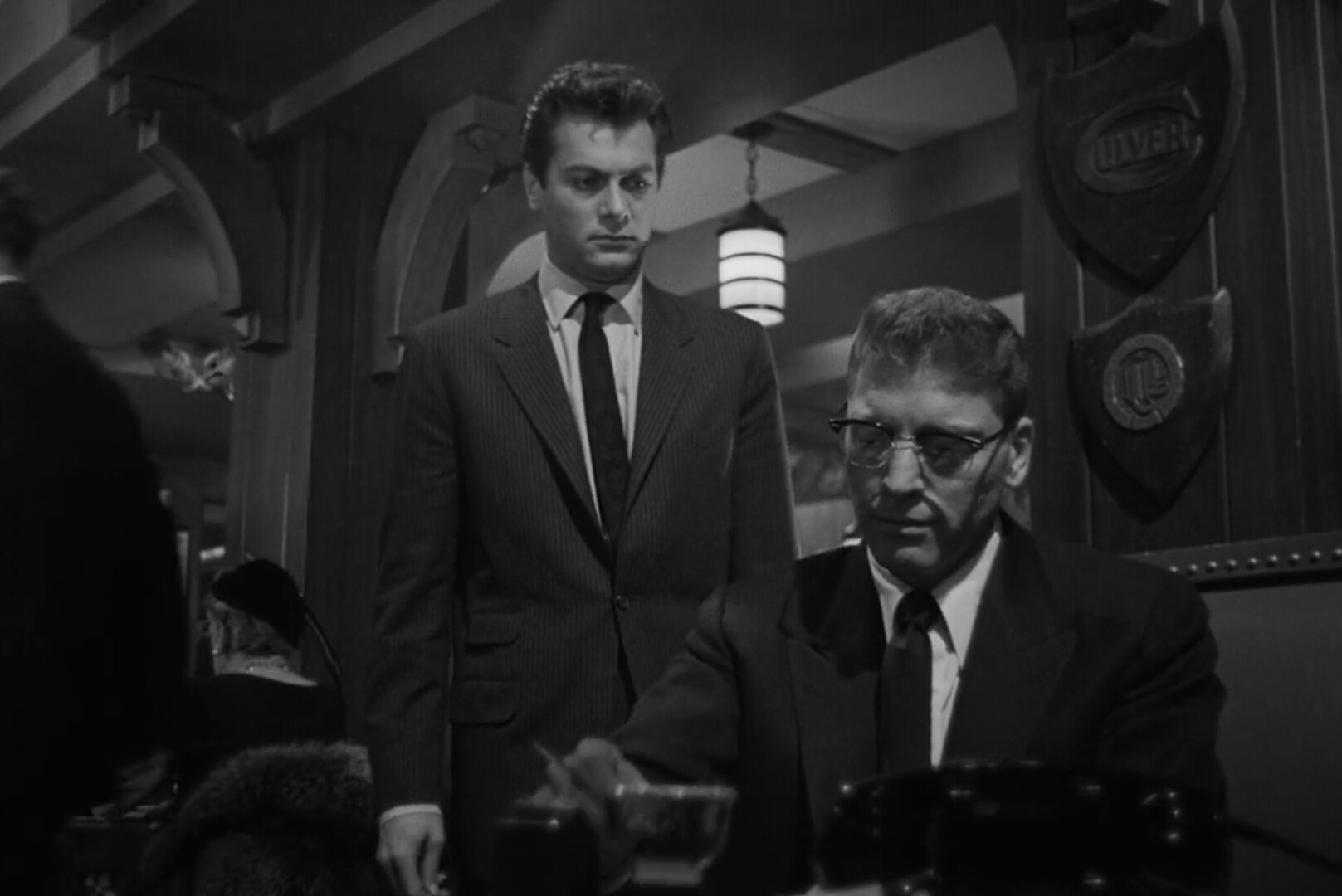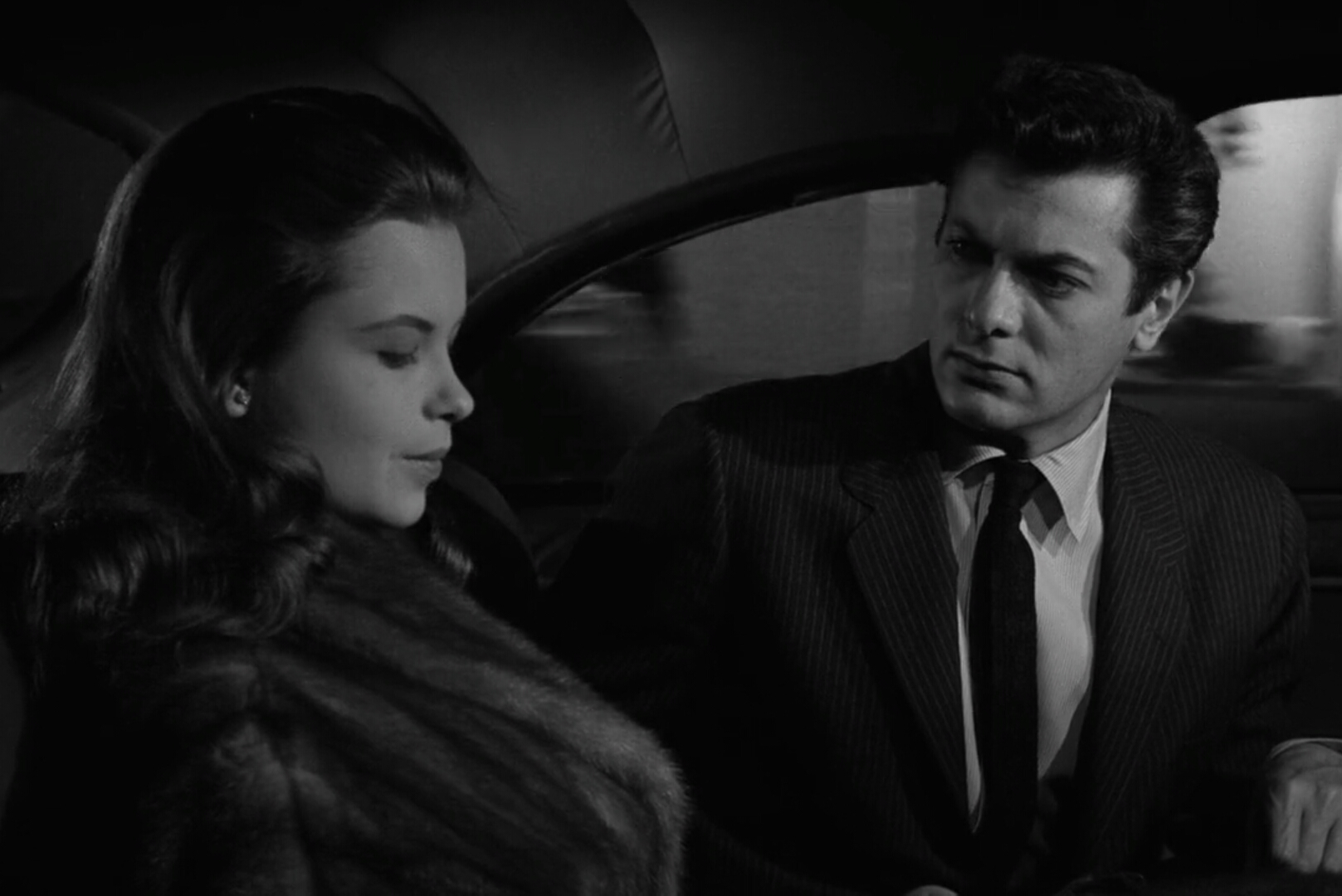There’s never been a better excuse to watch as many noir films as humanly possible than the cinephile community’s current favorite portmanteau. Deadshirt has decided to throw in with a month of essays highlighting some of our favorite works in the pantheon for Noirvember…
In cinema, noir is less a genre or a style than a distinctive, at times implacable feeling. In the language of film, it’s a striking typset that transcends even the most iconographic trappings the casual observer might attribute to it. Generally when you think “film noir” you think nameless, rain soaked cities populated by criminals and the broken cynics tasked to catch them or collude with them, depending on the which way the wind is blowing.
Rather than viewing noir as a genre that dictates a specific set of tropes, plot mechanics and setting, envision it as a particularly powerful Instagram filter, one you might place over an image to color it with a shade of dread and heartbreaking inevitability. “Noir” could turn a selfie at a CiCi’s Pizza into a wry Irish Wake at a pub across the street from the mortuary. It’s a visual style of sharp contrast and moody lighting married with a dark wit that elevates even the lowest brow of B-Movie set-ups into tragicomic ruminations on the predatory nature of society. Noir holds existence up to a cracked, skewed mirror and, within a heightened approximation of our own reality, shows us how fucked up we all have the troubling capacity to become.
Noir is all of us, only moreso, and pitch-shifted a few octaves into the screeching wail of stray cats in an alley at night, knowing how it’s all going to end and not being able to lift a paw to stop it.
For this first installment of our Noirvember series, we’re going to discuss two indisputable classics of the genre and one outlier that highlights that noir isn’t just bullets, dames and double crosses, but a particular slant on the human condition.
Let’s dig in.
Out of The Past (1947)
Kathie: I don’t want to die.
Markham: Neither do I, but if I have to I’ll die last.
One of my favorite noir premises is “private eye caught up in a racket with a duplicitous woman” and this film, starring the laconic Jeff Markham (Robert Mitchum) working for a powerful gambler named Whit Sterling (a deliciously slimy Kirk Douglas), delivers one of the most heart-wrenching depictions of that narrative. What’s unique about Out of The Past is the structure of the plot, which plays out like a dark twist on Casablanca.
When we meet our protagonist, he’s going by the name Bailey and running a gas station with the help of a deaf and mute teenager. The past that Markham has been hiding from in this small town is thrown right back in his face when an old associate, Joe Stefanos, happens to run into him. Markham is forced to ride up to Lake Tahoe to talk to Joe’s boss, Whit, whom Markham owes dearly. Markham is in love with a woman from the small town named Ann and he needs to get his old life off his chest, and so we flash back to what led him to this new quiet life. Framing the thrust of the backstory this way, as a reluctant confessional, is exciting, particularly in the way it juxtaposes the clever operator Markham used to be with the guilt-ridden everyman he’s pretending to be while in hiding. Markham had been hired by Whit to hunt down a woman who stole $40,000 from him, shot him and left him for dead. Her trail lead all the way to Acapulco, where Markham found himself too smitten to finish the job.
In Jane Greer’s Kathie Moffat, we have a peculiarly engrossing femme fatale. Toxic, manipulative, and hypnotic, Kathie becomes a living, breathing manifestation of Markham’s worst impulses. After one of the most suspenseful sequences in the film, in which Stefanos and Whit drop in on Markham unexpectedly, he runs away with Kathie, trying to live a new life until they’re found by Markham’s ex partner, who Kathie kills, revealing her true nature. There’s a close-up of Kathie watching Markham and the interloper fighting that illuminates everything about her. Up until now we’ve only seen her through Markham’s bewitched eyes, but here, presented in her own point of view, there’s a frightening malice to her. Once Markham sees it too, the two of them split and never see each other until the present day, when Markham finds her back with Whit and caught up in a brand new Gordian knot of blackmail, murder and theft.
The power of Out of The Past is how it manages to dramatize a fairly personal conflict: Markham trapped between his duplicitous past (personified by the untrustworthy but addictive Kathie) and the honest, open future he knows he doesn’t deserve (with the innocent Ann). The treatment of the female characters is pretty in line with a madonna/whore complex, but the film shows a world where shitty people make shitty decisions that they are doomed to pay for. No amount of running or lying will let anyone escape this perpetual web of graft and betrayal. It’s tragic, in that no one gets out unscathed, but oddly reassuring, in that they all fucking deserve it. Mitchum is aces in the lead role, oozing the offbeat machismo he’s always cultivated and genuinely selling you on the idea of a man who wants so badly to change but accepts that he’s not worthy of the rewards of true growth. Roy Webb’s score is also impeccable, whipping up a lusty froth peppered with a foreboding sense that nothing is as beautiful as it may seem.
Double Indemnity (1944)
I killed him. For money and for a woman. I didn’t get the money and I didn’t get the woman.
Speaking of femme fatales and webs of murder, no film’s leading lady measures up to Barbara Stanwyck’s Phyllis Dietrichson. In Out of The Past we witness Kathie Moffat’s thin veneer of decency disappear as Markham sees it, but in Double Indemnity, it’s pretty clear from jump street that Dietrichson is up to zero fucking good and despite this blatant danger, we, like insurance salesman Walter Neff (Fred MacMurray), just want a little piece, even if it means having to murder someone.
Director Billy Wilder takes the entire noir attitude and attaches it to a tale of a bored man shaken out of monotony. Neff, as performed by MacMurray, is a supremely likable and capable guy whose life is pretty rote. It’s the sublime routine of dutifully checking in on his clients that brings Phyllis and DAT ANKLET into his life. Wilder and Raymond Chandler’s script plays out on paper like a really twisted romantic comedy, with Neff and Dietrichson’s initial encounter being the most incisive meetcute ever. Unlike a lot of film noir stories, where a character is drawn into a gray morality slowly, Neff walks on screen as a guy itching for some excitement. He may not be a malicious or evil individual, but he’s just primed to go bad.
The only thing tethering him to reality is his friend and colleague, Keyes, played by a standout Edward G. Robinson. Furthering the romcom angle, Keyes is basically the steadfast Bill Hader to Neff’s Jason Sudeikis. Their very genuine, very palpable bromance grounds this film and sets it a cut above, providing a sobering and hopeful alternative to the smoldering destruction of Neff’s all-consuming interactions with Dietrichson. For every moment on screen in which Neff carelessly deceives those around him and conspires to do horrible things in the pursuit of money and Dietrichson, there’s a poignant counterpoint with him and Keyes, always punctuated by Keyes needing a cigarette lit by Neff. This being Billy Wilder, the undisputed Godking of movie endings, this all pays off in the film’s touching, clever conclusion.
Double Indemnity is pure pulp, but tinged with a sharpness that has never been matched on screen. Everyone speaks at the rapid fire screwball comedy clip, spewing quotables with ease. It gives the film a confectionary feel that betrays an inner ugliness, but that contrast is the crux of its enduring appeal.
Sweet Smell of Success (1957)
I’m nice to people when it pays me to be nice.
Alexander MacKendrick’s Sweet Smell of Success is a perfect film, but looking at it purely as an example of film noir, it plays like a curious exception. There’s little of the crime fiction staples one expects to be part and parcel of noir, but the vivid chiaroscuro of James Wong Howe’s cinematography, coupled with Elmer Bernstein’s jagged, jazzy score, reminds you why it’s in the pantheon. This vision of New York is so distinctive, and the fact that so many scenes are shot in the wild rather than a soundstage gives it a surfeit of life that can’t be overstated. The frame constantly presents a wealth of vibrancy highlighted by flickering neon signs. There are no gangsters or private dicks running around with guns and knives. This film is populated by unscrupulous gossip rag types and the weapons they wield are secrets and lies.
Our “hero” is Sidney Falco, played by a career best Tony Curtis, here cashing in his decidedly pretty looks to add insult to the injury of his disgruntled, disrespected press agent. Falco is handsome, like a movie actor, but is regularly described throughout the film (somewhat accurately) as a street urchin and a mutt. His entire life is trying to get little bits of publicity into J.J. Hunsecker’s newspaper column.
Hunsecker is maybe the most frightening villain in any noir movie ever. Burt Lancaster portrays him with a menace and a ferocity that makes him feel like a literal God. He rules his own little world with a pen and a sharp wit, a symbol of a bygone era. This film’s preoccupation with the seedy side of fame presages gossip blog and paparazzi culture while showing humans at their absolute basest. It’s a smooth twenty minutes before Hunsecker actually appears on screen and the six minute scene that introduces him, with a senator, a young singer, her manager, and Falco, is a masterclass in filmmaking and screenwriting. Screenwriter Clifford Odets tore Ernest Lehman’s script to shreds and rebuilt it line by line, taking a pretty talky, straightforward film and recreating it as a Greek tragedy wherein every single character wants something and will do literally anything to anyone to get it. This constant game if tit for tat, where even the most innocuous of greetings is delivered like a threat, makes for great drama, solidifying Sweet Smell of Success as the platonic ideal of depicting conflict on screen.
The central plot–Falco trying to break up a musician’s relationship with Hunsecker’s kid sister–has all the twists and turns you’re used to from a Chandler novel, but there’s something scarier about a world where regular people, not hardened criminals, treat one another so dismissively. They brandish words like bullets and every back-and-forth is a John Woo shootout. Unlike the aforementioned noir films, the central female role isn’t a conniving schemer, but perhaps the most honest character in the entire picture. Susan Harrison plays Hunsecker’s sister, also named Susan, with a Judy Garland kind of weariness, a mixture of naivete and burgeoning worldliness. Caught between the increasingly hideous Falco and her overbearing brother, she comes to outsmart both men, leaving them to stew on their maliciousness in a double murder harsher than any guns could possibly achieve.
Check Deadshirt.net later this week for another installment of our Noirvember essay series!

